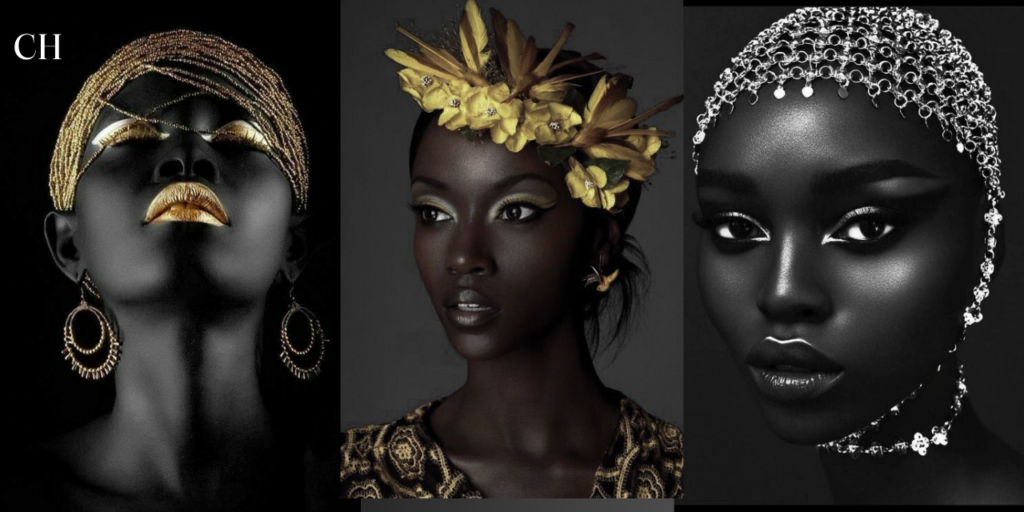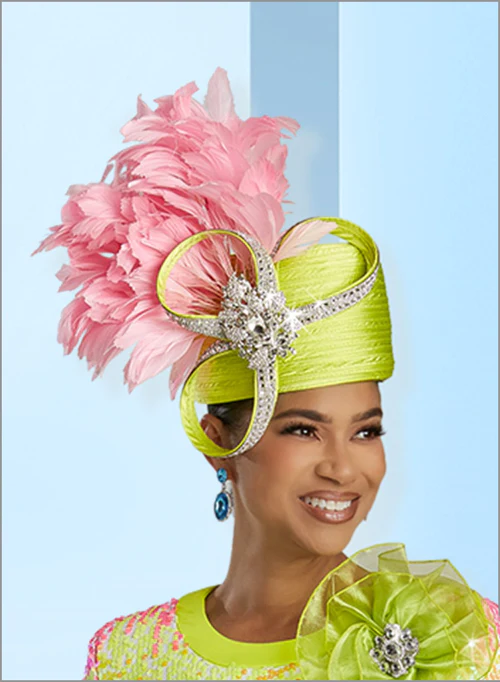
In the rich fabric of African American culture, church hats for women are bright emblems of history, flair, and identity. These hats carry a multigenerational tradition, connecting history, faith, and community. In this extensive investigation, we begin on a trip through time, uncovering the multiple significance of church hats for African women.
Roots in Tradition:
African American women’s custom of wearing hats to church stems from the intersections of history, culture, and spirituality. Head coverings played an important role in the lives of enslaved women everywhere, from the coasts of Africa to the plantations of America. Forced to toil under the hot sun, these ladies frequently wrapped their heads in cloth for protection from the weather. This practice of head covering persisted during the era of slavery in America, where it became a mark of modesty, respectability, and cultural identity. Despite the horrors of bondage, enslaved women discovered methods to display their uniqueness and dignity through their clothing, including the wearing of hats on important occasions such as religious gatherings.
According to TMG4, African American ancestors found a spiritual oasis in their head covered. Symbolically, it was a way of escape to a place of peace in the midst of doom and gloom. They created within their heart, a place of abundance and hope. The African American woman that sits under a church hat has a long history of stories of struggles, triumphs, and overcoming.
Evolution of Style:
Church hats grew from useful head coverings to ornate pieces of art, showcasing African American women’s creativity and resourcefulness. In the post-emancipation era, African American milliners emerged as remarkable artisans with exceptional talent and vision, incorporating African aesthetics and European beauty into their designs. These hats became more than just accessories; they were statements of style and sophistication, embellished with feathers, flowers, ribbons, and lace. Each hat was a work of art, meticulously designed to express the wearer’s personality, social rank, and sense of self. As African American women achieved more freedom and agency in society, their church hats became strong emblems of emancipation and self-expression.
Spiritual Significance:
Wearing a church hat is more than just a fashion statement; it is a deeply spiritual gesture filled with significance and reverence. For many African American women, choosing the right hat is a ceremonial exercise laced with prayer, meditation, and thought. Wearing a hat before entering the church’s hallowed sanctuary is a sign of reverence for the divine as well as a statement of faith. Church caps function as crowns of righteousness, representing the wearer’s relationship to God and dedication to her religious group. In this respect, church hats are both personal style statements and symbols of spiritual commitment and piety.
Symbolism of Identity:
Church hats are strong emblems of identification and belonging in the African-American community. Each hat conveys a tale about the wearer’s background, personality, and social status. From flamboyant wide-brimmed hats to delicate pillbox forms, each decision is significant, indicating the wearer’s status in the world. Church hats function as badges of honor, reinforcing one’s sense of self-worth and pride in cultural heritage. They are also symbols of social prestige and respectability, providing a feeling of dignity and elegance. African American women use hats to communicate their ideals, aspirations, and goals, building relationships across generations and communities.
Empowerment Through Adornment:
Wearing a church hat is an empowering gesture that allows African American women to reclaim space and assert their presence in historically male-dominated environments. In a society that frequently strives to marginalize and belittle individuals, these hats represent resistance and tenacity. They serve as confidence boosters, barriers to prejudice, and demonstrations of self-love and worth. African American women use ornamentation to embrace their beauty, strength, and dignity, refusing to be hushed or ignored. Church hats are not only beautiful, but they encourage women to navigate life’s complications with grace and perseverance.
Legacy and Tradition:
Wearing church hats is a beloved custom passed down from moms to daughters, grandmothers to granddaughters. Sunday mornings in churches around the country are decked with a kaleidoscope of hues and styles, with each hat representing the tenacity and fortitude of African American women. The habit of wearing church hats is more than just a fashion statement; it is a cultural rite that connects communities over time and geography. By wearing and handing down these hats, African American women respect their ancestors, maintain their heritage, and celebrate their shared identity.
Contemporary Evolution:
While church hats are deeply steeped in history, they are always evolving to meet changing tastes and trends. Contemporary designs may integrate elements of haute couture, street fashion, or cultural fusion to reflect the various influences on African American style. Social media has also provided a forum for promoting and praising church hat culture, establishing a sense of community and camaraderie among those who wear them. Despite these changes, church hat culture’s primary principles of tradition, elegance, and identity continue to be relevant and resonate in the modern world.
Celebration and Solidarity:
Aside from their visual appeal, church hats serve as symbols of solidarity and celebration in the African American community. They are proudly worn at religious services, weddings, and other special occasions, bringing women together to show their faith, culture, and sisterhood. Church hats are used in churches and social gatherings as conversation starters, icebreakers, and sources of joy and inspiration. They are tokens of love, support, and solidarity that bind women together through shared experiences and identities.
Church hats for African women are more than just clothing; they are cultural symbols of elegance, faith, and identity. These hats, with their elaborate designs and brilliant colors, represent the tenacity, strength, and beauty of the African American experience. The practice of wearing church hats will continue as long as women congregate in places of worship, as a monument to a people united in religion, community, and cultural pride.


